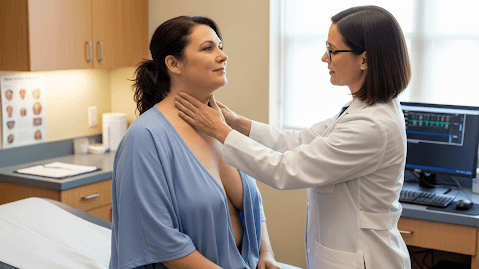
The Unseen Dangers of a Mini-Stroke: What Every Woman Should Know
A mini-stroke, medically known as a transient ischemic attack (TIA), is often dismissed as a mild health episode, but the implications are far more significant than many realize. In fact, women are at a heightened risk for these "minor" strokes, with unique symptoms and consequences that demand attention.
Understanding the Basics: What is a Mini-Stroke?
A mini-stroke occurs when there's a temporary interruption in blood flow to the brain. This may last only a few minutes, and symptoms can disappear quickly. But don't be fooled by the temporary nature of a TIA—it serves as an important warning sign of future strokes, especially for women who often experience different symptoms than men.
Why are Women at Increased Risk?
Research indicates that women may experience TIAs differently. While men often exhibit the classic signs like weakness or difficulty speaking, women might face more subtle symptoms such as dizziness, headaches, or even nausea. This discrepancy can lead to underreporting and misdiagnosis, putting women at greater risk for consequential strokes later on. In addition, factors such as hormonal changes during menopause and the prevalence of certain health conditions, including high blood pressure and diabetes, contribute to this increased vulnerability.
Impacts on Women's Health
The consequences of a mini-stroke can be grave. Women who experience TIA are at a heightened risk of suffering a full-blown stroke within a few days, weeks, or months following the episode. Statistics show that approximately 10-15% of all strokes are preceded by a TIA, especially alarming for women who often delay seeking medical attention due to stigma or misconceptions about their symptoms. Understanding the physical and emotional impact of this health scare is vital not only for immediate care but also for long-term health.
A Preventative Approach: Key Lifestyle Changes
In light of the significant risk associated with mini-strokes, women can take proactive measures to safeguard their health. Lifestyle changes such as maintaining a balanced diet rich in Vitamin D, engaging in regular exercise, and managing stress levels can play a crucial role. Furthermore, increased awareness about women's health issues can empower women to consult healthcare providers when encountering symptoms.
Myths About Strokes and Women's Health
There are several myths around strokes that can create confusion, such as the notion that TIAs only affect older adults. In actuality, younger women should also be cognizant of risks, especially those with a family history of vascular diseases or chronic illnesses. By dispelling these common misconceptions, women can foster a more informed approach to their health.
Making Informed Decisions for a Healthier Future
Recognizing symptoms and understanding their implications can lead to timely action, reducing the risk of severe health events. It’s crucial for women to have open discussions with their healthcare providers, ensuring they don't simply write off TIA symptoms as fleeting incidents. Proactive health checks and supportive networks can foster better lifestyle choices, improving overall wellbeing.
Take Charge of Your Health
Every woman has the power to influence her health outcomes positively. By prioritizing education about strokes and implementing healthy lifestyle changes, women can navigate risks associated with mini-strokes more effectively. Share this information with friends and family, and initiate conversations about women's health. It’s time to be proactive, seek information, and embrace positive lifestyle choices.
 Add Row
Add Row  Add
Add 




Write A Comment